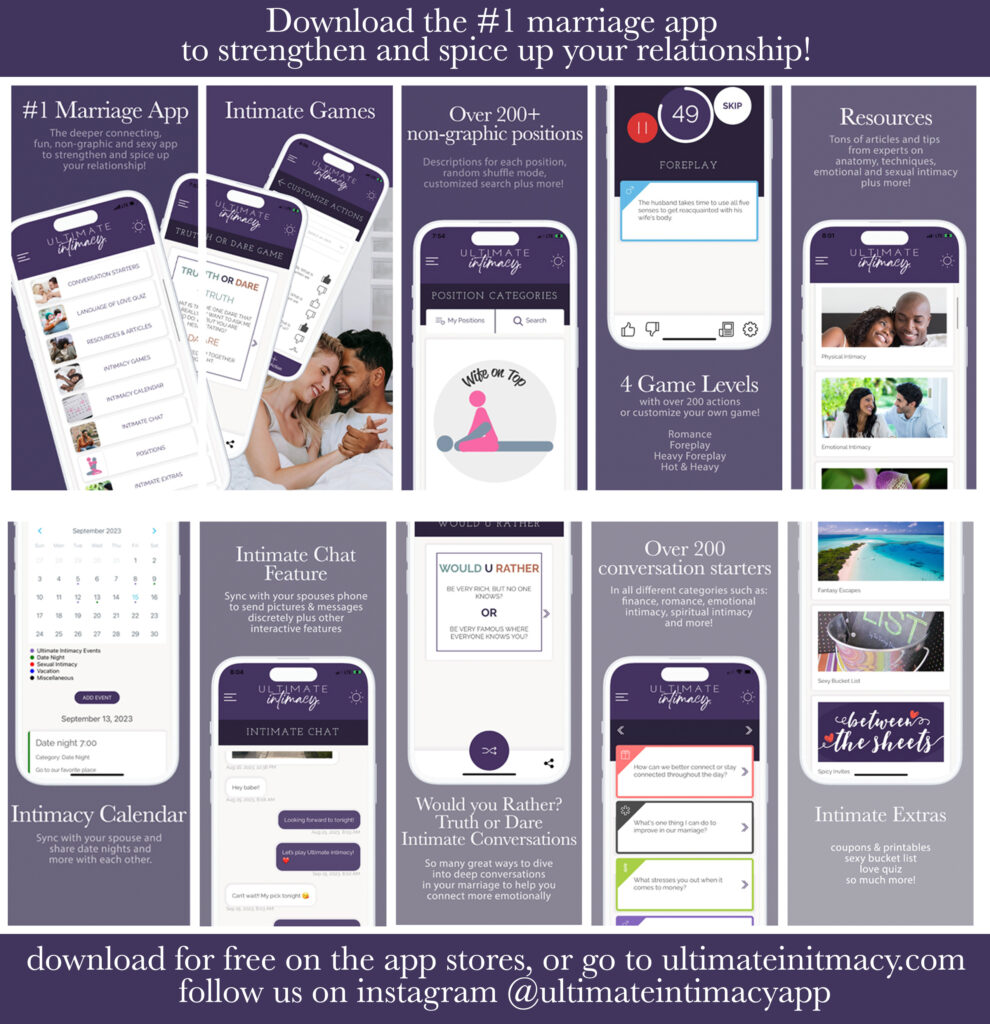Emotional rejection in marriage can be just as painful and complex as sexual rejection. In fact, emotional intimacy encompasses a myriad of facets that can make or break the bond between couple. It’s not just about saying “I love you” or sharing physical touch; it’s about feeling understood, valued, and deeply connected on a soulful level.
In a recent podcast discussion on emotional intimacy in marriage, we talked about the nuances of this vital aspect of relationships. We also conducted a survey to gauge the strength of emotional intimacy among our audience, and the results were both eye-opening and sobering.
A significant portion of respondents reported feeling a lack of emotional connection in their marriages. Some expressed feeling isolated, only receiving emotional intimacy when their spouse wanted sex, while others acknowledged that although they received some emotional support, it fell short of their desired level.
Check out the podcast episode 218. Emotional Rejection In Marriage.. Let’s Talk About It.
So lets first dive in and take a look as to what emotional rejection looks like in marriage:
Emotional rejection in marriage can take various forms, leaving one or both spouses feeling disconnected, unfulfilled, and hurt. Unlike sexual rejection, which may involve a clear refusal of physical intimacy, emotional rejection can be more subtle and complex. Here are some common signs of emotional rejection in marriage:
Lack of Communication: When one spouse withdraws from meaningful conversations or avoids discussing deeper emotions, it can lead to a sense of isolation and emotional distance.
Withholding Affection: Emotional rejection can involve a reluctance to show affection, such as withholding hugs, kisses, or compliments, leaving the other spouse feeling unloved or unappreciated.
Dismissive Behavior: Dismissing a spouse’s thoughts, feelings, or concerns without genuine consideration can convey a message of invalidation, causing emotional pain and resentment.
Ignoring Needs: Neglecting to meet a spouse’s emotional needs or showing indifference to their struggles and successes can create feelings of neglect and loneliness.

Avoidance of Intimacy: Emotional intimacy involves vulnerability and openness, but emotional rejection can lead to a lack of intimacy, as one or both spouses avoid sharing their innermost thoughts and feelings.
Criticism and Contempt: Constant criticism, sarcasm, or contemptuous behavior towards a spouse can damage their self-esteem and erode the emotional connection between them.
Defensive Responses: Responding defensively or dismissively to attempts at emotional connection can hinder effective communication and deepen feelings of rejection.
Emotional Infidelity: Seeking emotional connection or validation outside of the marriage, whether through friendships, online interactions, or affairs, is a clear sign of emotional rejection within the relationship.
Stonewalling: Withdrawing from interactions, giving the silent treatment, or refusing to engage in discussions can signal a breakdown in communication and emotional connection.
Feeling Alone in the Relationship: One of the most profound indicators of emotional rejection is feeling alone or isolated within the marriage, despite being physically present with a spouse.
So, what does emotional intimacy look like in marriage? The responses from the survey participants shed light on various aspects:
Sharing Without Judgment: Spouses should feel safe to express their thoughts and feelings without fear of criticism or judgment. This open communication fosters trust and deepens the bond between spouses.
Understanding Love Languages: Recognizing and respecting each other’s love languages is crucial. Whether it’s words of affirmation, acts of service, physical touch, quality time, or receiving gifts, partners should strive to meet each other’s emotional needs.
Transparency: Building trust requires transparency and honesty. Couples should be open about their thoughts, feelings, and actions, creating a foundation of mutual respect and understanding.
Quality Time Together: Taking time to engage in meaningful conversations and non-sexual physical touch strengthens emotional intimacy. Even just 20 minutes a day of uninterrupted connection can make a significant difference.
Expressing Affection: Sending loving texts, writing heartfelt letters, and offering compliments are small gestures that can have a big impact on emotional connection. Being attentive to each other’s emotional needs and expressing affection regularly reinforces the bond between partners.
Supporting Each Other: Partners should be attuned to each other’s emotional cues and provide support when needed. Whether it’s offering words of encouragement, lending a listening ear, or being a source of comfort, showing up for each other during challenging times strengthens emotional intimacy.
Regular Check-ins: Having regular conversations about the state of the relationship can help identify areas for improvement and celebrate successes. Discussing both challenges and triumphs fosters understanding and reinforces commitment to each other.
Continued Dating: Keeping the spark alive requires ongoing effort. Regular date nights provide an opportunity for couples to connect, communicate, and prioritize their relationship amidst life’s demands.
Emotional intimacy is the cornerstone of a thriving marriage. When couples prioritize open communication, mutual respect, and genuine connection, they lay the foundation for a relationship that can weather any storm. By nurturing emotional intimacy, couples can cultivate a bond that grows stronger with each passing day.
Ultimate Intimacy


